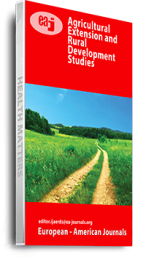Maize is one stable food grownall over Kenya including Perkerra Irrigation Scheme. However, over the years, its production has been on decline due to many challenges including; decrease in land as result of increase in population, loss of soil fertility, use outdated technologies which in return would sustain or increase production. Despite the availability of these technologies, small scale farmers in Perkerra irrigation scheme had not yet adopted them. The purpose of study was to determine the influence of the extension services, access and utilization of available information on modern techniques and social economic factors hindering the adoption. The study targeted 798 farmers from Loropil, Ng’oswe,Ng’ambo and Labos. Multi stage sampling was applied to draw a total of 100 participants. Data was collected by the use of questionnaires which applied both closed and open ended questions. Data was analyzed by the use of Multiple Linear Regression method so as to get the coefficients of the independent variables and the importance on the adoption of technology. Spearman’s method was also used to determine the correlation coefficient. The results showed that 53% and 43 % of the respondents were males and females respectively. 47% whose education level was 57% attained primary level. Social economic factors were significant in determining the level of technology adoption at 95% level of significance and it had a p-value of 0.03 and hence statistically important. Most farmers (58%) received extension services from the Kenya Seed Company. Radio and public assembly (Baraza) was the main source of information. Based on these findings, both the county and national government should employ more extension officers and ensure subsidization of the basic farm inputs like seeds and fertilizers.
Keywords: Adoption, Productivity, Technology

